As human beings, we all hope for the best, but must prepare for the worst. Disasters can strike at any moment, and the aftermath can be devastating, both physically and mentally. But how do you mentally prepare for a disaster?
To mentally prepare for a disaster, research the most common natural disasters in your area, develop an emergency plan with family or roommates, and practice the plan regularly. Acknowledging your emotions and seeking support from loved ones or a mental health professional if needed may help too.
In this article, we will explore some ways to mentally prepare for a disaster, so you’ll know exactly what to do when one strikes your area.
Quick Navigation
- Understanding Potential Disasters
- Creating An Emergency Plan
- Practice the Plan
- Manage Emotions
- Conclusion
Understanding Potential Disasters
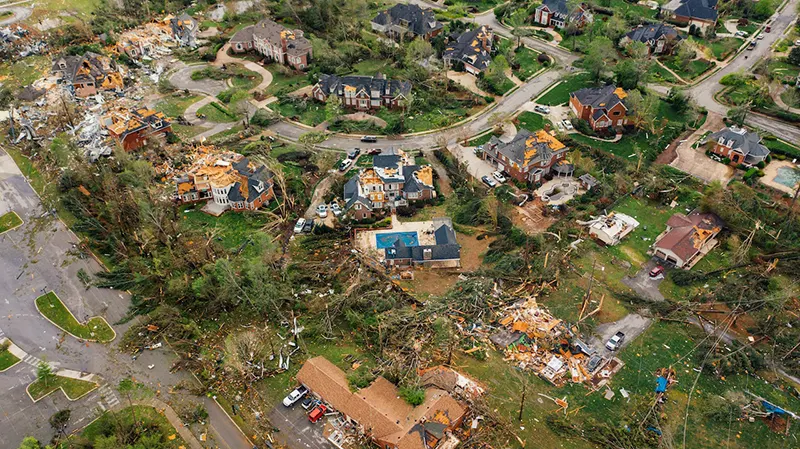
Understanding potential disasters is the first and most crucial step in mentally preparing for a disaster.
To properly prepare yourself, you need to know exactly what disasters threaten your area.
Try to research the most common natural disasters in your area. Ask around if hurricanes, tornadoes, earthquakes, floods, wildfires, and tsunamis typically hit your place.
Local government and emergency management agencies can provide information on potential disasters.
They can even let you know their severity and impact on the community.
Know the Warning Signs and Evacuation Routes
Should an emergency happen, you need to know what warning signs to look out for. This may include hearing sirens or earthquake rumbling.
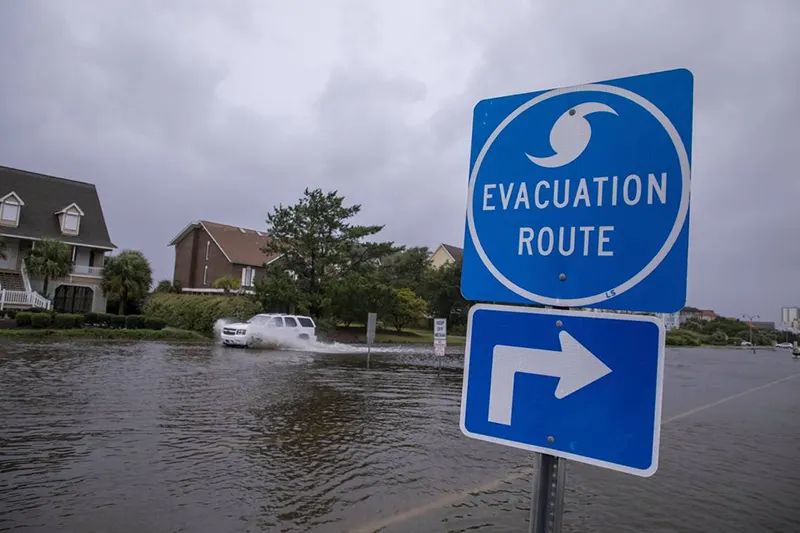
In addition to the warning signs, you also need to know where to go. Being familiar with the evacuation routes in your area can help you evacuate quickly and safely if necessary.
Creating An Emergency Plan
An emergency plan can help you and your family or roommates stay safe and organized during a disaster.
Here are some key steps to consider when creating an emergency plan:
Develop A Plan with Family Members or Roommates
Sit down with your family members or roommates and develop a plan together.
Make sure that everyone is aware of the potential disasters in your area and their respective risks.
Brainstorm different scenarios that could occur, such as a power outage or evacuation, and establish roles for each person.
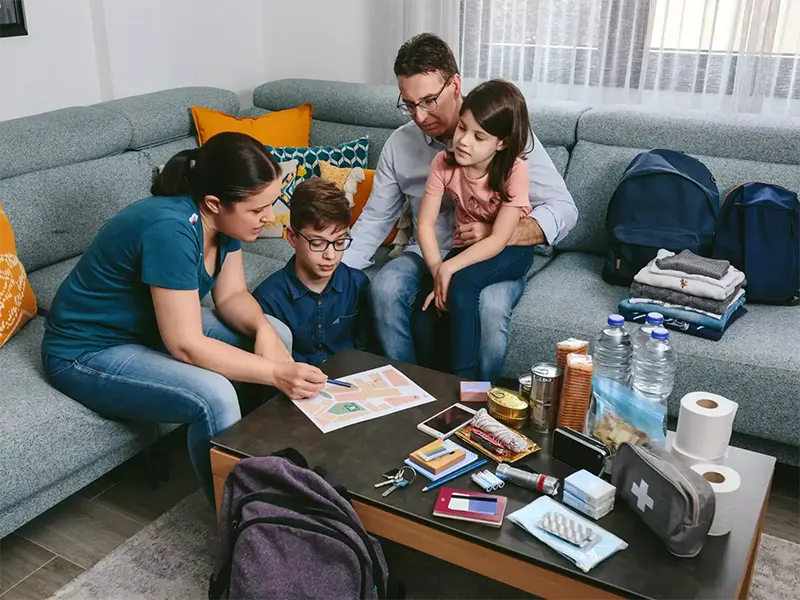
Assign tasks such as packing the emergency kit, shutting off utilities, or contacting emergency services.
When developing an emergency plan, it’s a good idea to plan for different scenarios that could happen.
This can include having a plan for staying in your home during a disaster or evacuating to a safe location.
Discuss Communication Methods and Where to Meet In Case of Separation
During a disaster, communication can become difficult, especially if cell phone service is disrupted.
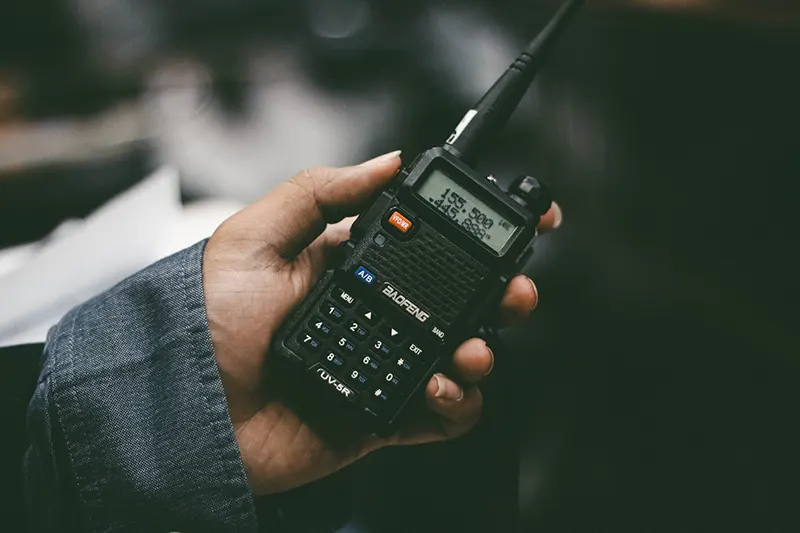
Considering that, make sure to discuss communication methods with your family members or roommates. It could involve texting or using a walkie-talkie.
Also, don’t forget to establish a meeting place in case you are separated. Make sure everyone knows how to get there.
Create An Emergency Kit with the Necessary Supplies
An emergency kit is essential to have in case of a disaster. It should include essential items such as water, non-perishable food, a first aid kit, flashlights, and batteries.
Customize the emergency kit to your family’s specific needs, such as medications or baby formula. Make sure to store the emergency kit in an easily accessible location.
Practice the Plan
Practicing the emergency plan helps you and your family or roommates understand what to do during a disaster and identify any potential issues in your plan.
Here are some tips on how to practice your emergency plan effectively:
Conduct Emergency Drills
Conducting emergency drills can help you and your family or roommates practice the emergency plan and simulate the experience of a disaster.
Set a date and time for the drill and run through the emergency plan step-by-step. This can help you identify any weaknesses in the plan and make necessary adjustments.
Identify Any Potential Issues and Adjust the Plan Accordingly
During the emergency drill, identify any potential issues that may arise, such as a blocked evacuation route or missing supplies in the emergency kit.
Adjust the plan accordingly to address these issues. Make sure everyone understands the changes to the plan, and practice the revised plan until everyone is comfortable with it.
Increase Familiarity With the Evacuation Routes
Knowing the evacuation routes is crucial in a disaster, so it’s essential to practice and increase familiarity with them.
Practice evacuating the home or building using different routes and ensure that everyone knows how to get to the designated meeting spot.
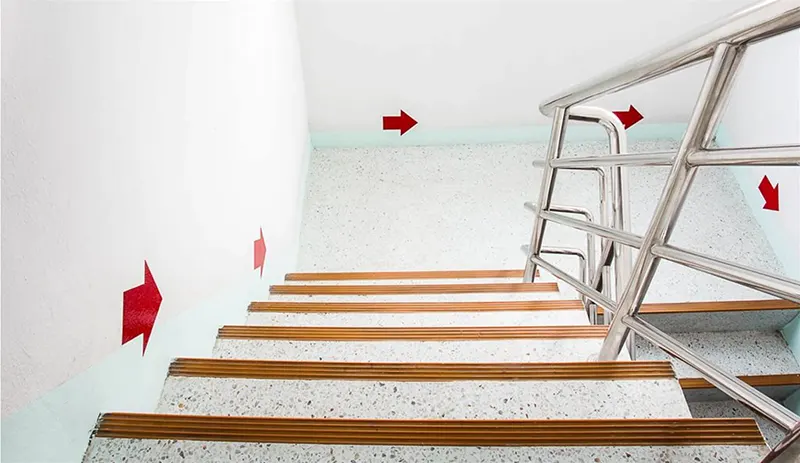
Familiarity with evacuation routes can help you and your loved ones stay calm during a disaster and evacuate safely.
Manage Emotions
A disaster can be a traumatic experience and can evoke intense emotions such as fear, anxiety, and panic.
You can teach yourself to handle your emotions better during disasters with the following ideas:
Acknowledge and Accept Your Emotions
Allow yourself to feel the emotions and understand that they are normal reactions to a traumatic event. Be open about them instead of denying how you’re truly feeling.
Use Relaxation Techniques
Relaxation techniques such as deep breathing and meditation can help reduce stress and anxiety during a disaster.

Practice these techniques regularly to help you remain calm and centered. You can also try other relaxation techniques such as yoga or progressive muscle relaxation.
Seek Support
It’s important to seek support from loved ones or a mental health professional if you are struggling to manage your emotions during a disaster.
Reach out to family members or friends and talk about your emotions.
If you are experiencing severe or long-lasting emotional distress, consider seeking professional help. A mental health professional can guide you in managing your anxiety.
Conclusion
While disasters are unpredictable and can be overwhelming, mentally preparing for them can help you and your loved ones stay safe and cope with the aftermath.
By understanding potential disasters, creating an emergency plan, practicing the plan regularly, and managing your emotions, you can increase your resilience and readiness.
Remember, being mentally prepared is just as important as physical preparation when it comes to dealing with a disaster.
The steps outlined above can help you face any challenge with confidence and strength.
